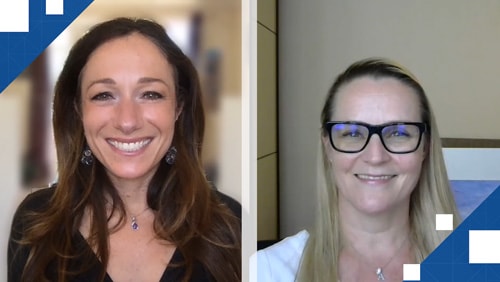 The demands of an HR team are never easy, and the Covid-19 pandemic made it that much harder. So many firms in the gambling industry had to manage the transition to working from home, and some did it better than others. On the affiliate side, Catena Media has successfully got everyone working remotely, and they did it pretty quickly. Our Becky Liggero Fontana caught up with Fiona Ewins Brown, Chief HR Officer of Catena Media, to see how they did it.
The demands of an HR team are never easy, and the Covid-19 pandemic made it that much harder. So many firms in the gambling industry had to manage the transition to working from home, and some did it better than others. On the affiliate side, Catena Media has successfully got everyone working remotely, and they did it pretty quickly. Our Becky Liggero Fontana caught up with Fiona Ewins Brown, Chief HR Officer of Catena Media, to see how they did it.
The challenge of shifting to remote work isn’t the same for every operation or country. “We have offices around the world in a few different locations, so each country has been a little bit different in terms of obviously how the local governments have actually been handling things, so we’ve needed to follow a little bit of their guidelines,” Ewins Brown said. “The first office that we had that started working from home was our Italian office. They’re based in Rome, obviously that happened now, very, very early on, Italy was impacted very quickly so that was an easy decision to make that they all started working from home.”
But Catena Media was set up very well for a quick transition. “As a company we are lucky that we’re in a situation where we were able to make a decision in all of the locations pretty much from one minute to the next that people could work from home,” she said. “We have the tech setup, and we have the capabilities that we can do everything remotely. So that really helped us. And I know that a lot of game operators that have customer service teams or live studios or any of those types of things, and that was a bit more of a challenge, but as an affiliate, we didn’t have that problem.”
Besides Italy and Malta, Ewins Brown also spoke briefly about the different challenges presented by offices in Serbia, Tokyo, the U.K. and Sweden. And there were plenty of challenges. “We’ve got a lot of parents that are at home, with schools closed they’re trying to juggle kids, I know I’m one of those as well,” she said. “We’re trying to focus and not have disruptions and interruptions of daily life. It’s difficult, and what we’re also finding as well is that people are finding it really difficult to shut off from work. So in the past they would leave the office, and whilst there might be some people that might check emails, there weren’t a lot of people doing that, whereas now were having to really make sure that we implement a lot more education and a lot more guidance to people of really not doing that. Setting a routine, kind of just starting your day and setting up a routine to end your day. And we’re also now at the moment really, strongly encouraging people to take some of their leave and vacation, even if they can’t go anywhere, because people still need to take a break, because we are worried about burnouts for some people as well.”
Liggero Fontana asked what the new normal might look like for Catena Media. “Everyone’s going to need to be very flexible as a business, in terms of how they do it, but for us because we can operate completely remotely, and that our employees health is our primary concern, not racing back to the office, we’ll probably be one of the last ones, maybe, to go back to the office,” Ewins Brown responded. “We talked yesterday as a management team, we don’t want to be needing to hand out masks to people, and monitoring how many people are in the office at any one time, social distancing and all those types of things, for us that’s not feasible when we can all still be at home.”
But can every organization do that long term? That’s tougher to say. “This has been a really good test case scenario, but what we’ve also got to consider is that its not just a normal test case scenario,” Ewins Brown said. “At the moment it is an extreme situation with the pandemic, so everyone is remote, everyone is in the same situation, so everyone has to have that flexibility and that mindset, and that’s easier to do, I think, than when some people are in an office and some people are remote. And that, I think, is what we’re going to see going forward, there will be more people wanting to work remote, and yes, we’ve proven that it can work, but I think we need to still think about some of the issues, and some of the concerns that we’ve had. They’re still there, but we just now have a different experience to bring to that, and so we will need to be more flexible going forward, but we still need to think about how that is going to work, because it’s not going to be the same as it has been now.”
Finally, Liggero Fontana asked about the Malta government’s encouragement to promote teleworking and discourage commuting. Ewins Brown just doesn’t see that working for such a small country. “I think it’s a solution, but Malta is such a small country, where we’ve had a lot of people in the past in Malta wanting to work from home, we’ve always given them flexibility…but otherwise, if you take a job in Malta, why would you want to work from home when home is only fifteen, twenty minutes from the office anyway?”
